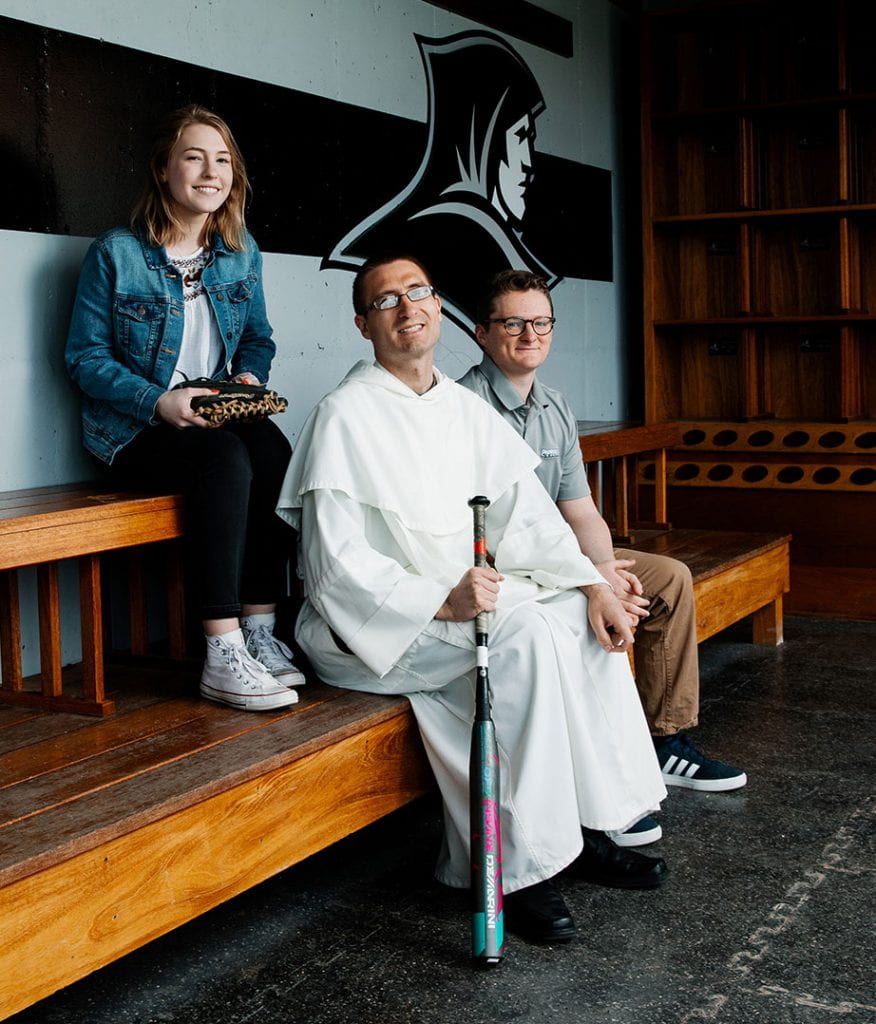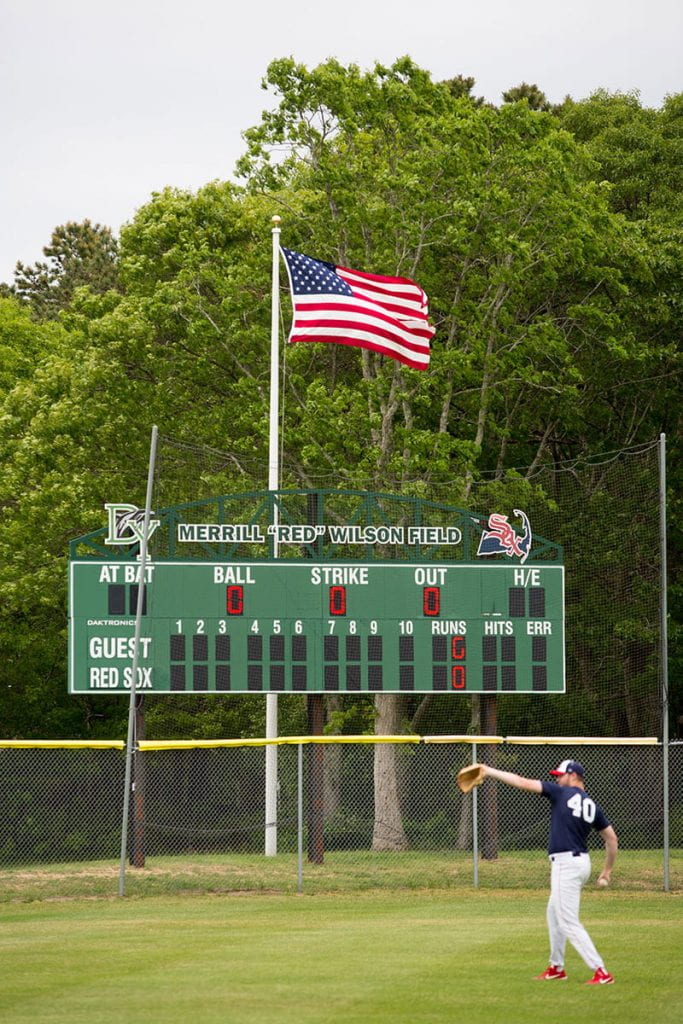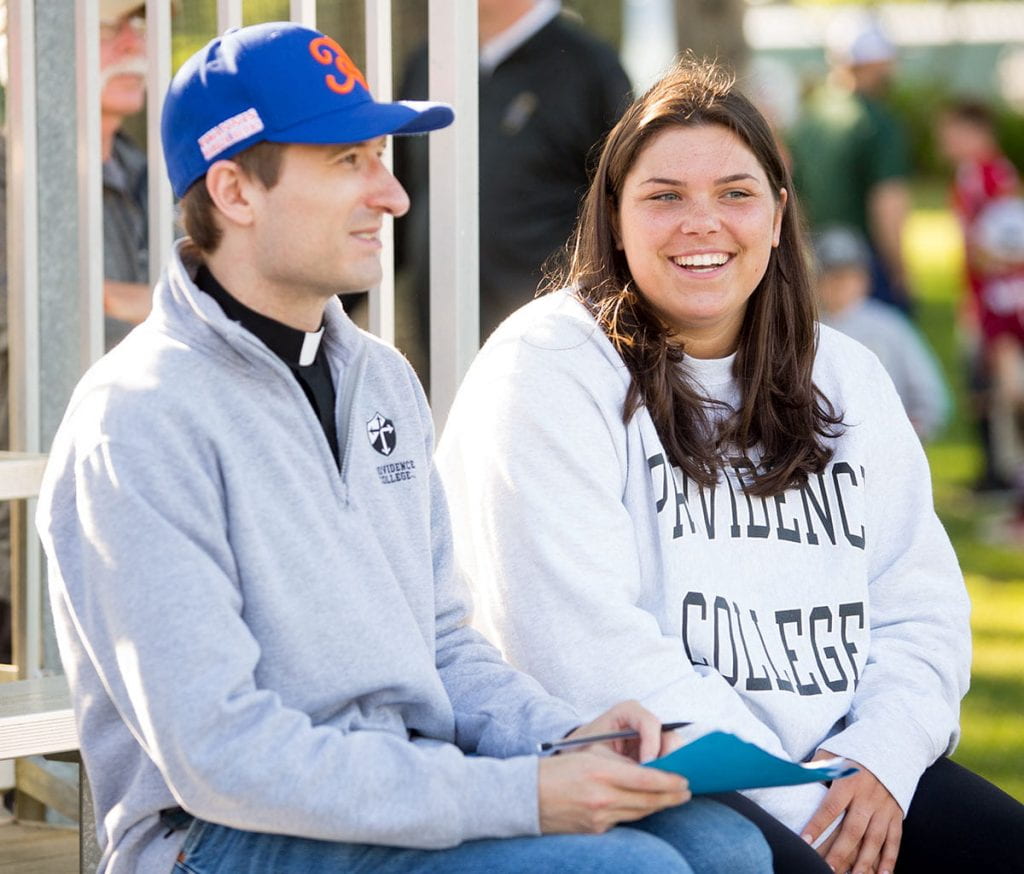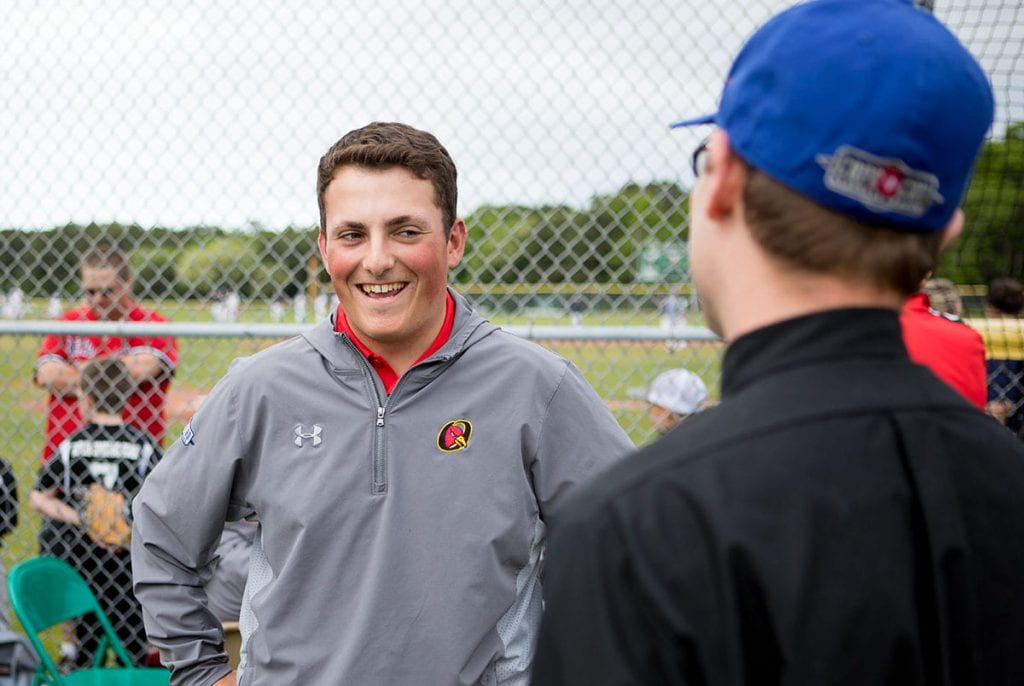Numbers game: Research students dive into baseball statistics with Rev. Humbert Kilanowski, O.P.
By Vicki-Ann Downing
Sabermetrics is the analytical, evidence-based approach to baseball introduced more than 50 years ago by Bill James and made famous in the book and film Moneyball.
This semester, Rev. Humbert Kilanowski, O.P., assistant professor of mathematics, is teaching a new research course, Sabermetrics: The Mathematical Analysis of Baseball. Father Humbert and his students are seeking a better formula for Wins Above Replacement, or WAR — the single number that expresses a baseball player’s value to his team.

“WAR is a model for evaluating a player in the context of how many games his team stands to win because he is on the team — as opposed to a replacement player available by trade or from the minor leagues,” Father Humbert said. “We want to find a way to get a more objective model, since there are so many competing formulas out there.”
In their research, Father Humbert’s students are using statistical data from the Cape Cod Baseball League, a premier collegiate summer league in which players are of similar age and ability and travel similar distances to games.
Father Humbert, a baseball fan since childhood and a statistician for his high school team, made three trips to the Cape from early June to early August to watch and score games. Father Humbert found his vocation to the Order of Preachers while studying for a Ph.D. in mathematics at The Ohio State University, which he completed right before joining the Dominicans. He was assigned to teach at PC following his ordination to the priesthood in May 2018.
After arriving at PC, “I knew that I wanted to build on my research background in applied probability,” Father Humbert said. “God’s providence has shown me new ways to tie in mathematics with my studies in philosophy and theology since becoming a Dominican, and even searching for a better model in baseball is part of the lifelong quest for truth.”

A professor needs only three students to fill a research course, but Father Humbert’s email attracted 14 — eight men and six women, including two members of the softball team. They began the semester by learning the coding language R, which allows users to develop statistical software and to analyze large amounts of data.
“I’ve played baseball my whole life. Having the opportunity to apply statistics to baseball was something I couldn’t miss,” said Connor Smith ’21 (Glen Rock, N.J.), who is majoring in both mathematics and marketing. “Our first step has been to use play-by-play data from the Cape Cod League to compute run expectancies for different situations within a game.”
Kristy McSweeney ’22 (Medway, Mass.), a mathematics major, hopes to intern with a baseball team next summer and eventually put her skills to work as an analyst for a professional sports organization.
“We’ve learned how to work with data, and we’ve learned a lot about baseball in general,” McSweeney said. “I don’t think many schools would offer a course like this.”

There have been other perks for students as well. Two interned with the Cape Cod League during the summer. Erin O’Rourke ’21 (Medway, Mass.) was an official scorer, and Caroline O’Connor ’22 (North Andover, Mass.) was a videographer. Thomas Zinzarella ’21 (West Hartford, Conn.), who has interned with the league as a play-by-play broadcaster for the past two summers, also enrolled in the class.
For their final project, students will divide into teams of two and use their information and raw data to make improvements on the WAR formula. Father Humbert’s goal is to have a group of students present their research at the annual SABR Analytics Conference sponsored by the Society for American Baseball Research in Phoenix, Ariz., in March.

Father Humbert is a member of the Rhode Island chapter of SABR, which meets at St. Philip’s Parish Center in Greenville, R.I. He also serves as chaplain for PC’s Raymond Hall, a residence hall for first-year women, and as chaplain for the women’s and men’s cross country teams.
“If we find a formula that correlates better with a team’s actual wins or a player’s actual market value, it could further change the way major league teams operate,” Father Humbert said. “We do aim to refine the analytic methods and hopefully improve on the way teams scout college players.”





